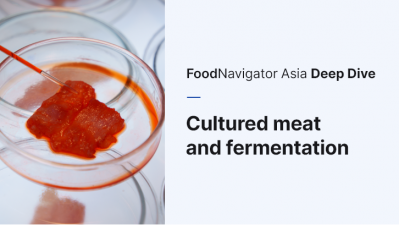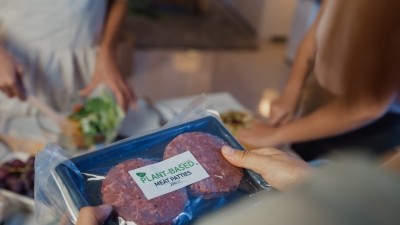Meatable says costs cut and production improved as it aims to debut price-competitive cultivated meat in Singapore

Founded in 2018, Meatable raised US$35m in a recent funding round, bringing its total funding to US$95m, which will be used to scale up production and accelerate commercialisation.
In September, the company held its first ever media tasting in Singapore, marking a significant step towards full regulatory approval for sales in the island-state.
“The event received Singapore Food Agency (SFA) approval, a necessary part of the regulatory process. Singapore has one of the world’s most developed cultivated meat regulatory frameworks, alongside the US.
“Moreover, the country is a great hub for innovation and has a very forward-thinking approach to novel food,” Krijn de Nood, co-founder and CEO of Meatable, told FoodNavigator-Asia.
The firm is poised to debut its cultivated pork products in select Singapore restaurants next year, and launch in local supermarkets from 2025.
It has partnered with Esco Aster, the country’s sole commercially licensed cultivated meat manufacturer, to kick-start production.
“Singapore is Meatable’s first production site outside our headquarters in The Netherlands. We are currently in conversation with several restaurants and butchers to discuss our product launch. At the same time, we are working on establishing a presence in the US, so part of the funding will be used for expansion into that market.”
At the event, the firm unveiled items such as pork sausages, hot dogs and pulled pork, while other products such as pork belly and whole cuts are in the works.
Meatable’s patented opti-ox technology, used in combination with pluripotent stem cells, enables the cell-to-sausage process to complete in just eight days, a rate 30 times faster than traditional pig rearing.
“This efficiency allows us to produce cultivated meat affordably. It is essential to create products that compete with the low prices of conventional meat. If we can’t achieve this, then cultivated meat will remain something that only wealthy people can afford, making it incredibly difficult to encourage consumers to embrace cultivated meat in their diets.
“With our technology and its recent achievements in terms of speed, we are ready to scale up the production of our products at a cost-competitive price point to reach mass market demand and ensure widespread accessibility,” de Nood shared.
Giving consumers “a real choice”
Meatable’s R&D team has been working on enhancing the efficiency of production processes, while further optimising the quality and taste of its cultivated meat.
“According to Food and Agriculture Organization of the United Nations, pork is the most widely eaten meat in the world (36%). By focusing on pork, we aim to offer people a real alternative to traditional meat that is just as tasty and has the same nutritional profile, but much better for our planet and without harming animals.
“Within five years, we are now at a point where we have a great range of products and can produce them at scale using the opti-ox technology. Our technique can be applied to beef as well, so that is something we’re looking into for the future,” de Nood said.
In addition, Meatable is also collaborating with Love Handle, Asia’s pioneering plant-based butcher, to co-develop a hybrid product range.
Opportunities amid challenges
Regulatory approval remains a major barrier for the cultivated meat category, said de Nood.
“Singapore and the US have paved the way for a regulatory approach that works with cultivated meat companies to ensure they meet the criteria to sell their products. It is great to see the positive impact this has had so far.
“We are working closely with regulatory agencies around the world to get approvals for our products. This will help us reach a global audience, and enable them to experience that cultivated meat is real meat.”
On the same note, de Nood thinks that consumer education is another area which requires greater efforts.
“The faster we launch, the earlier we can start the education to build consumer acceptance and begin making an impact with harm-free meat. In the long term, we want to completely transform how people eat meat. We could save 27m animal lives by 2035.”
He believes that the biggest opportunities for cultivated meat are in markets with strong demand for “sustainable, ethical protein”, a tech-friendly attitude, and supportive regulations.
“Singapore and North America stand out due to the meat consumption, eco-conscious consumers, and appetite for innovation. These markets align well with cultivated meat’s ability to address food security challenges and cater to consumer preferences.”



















